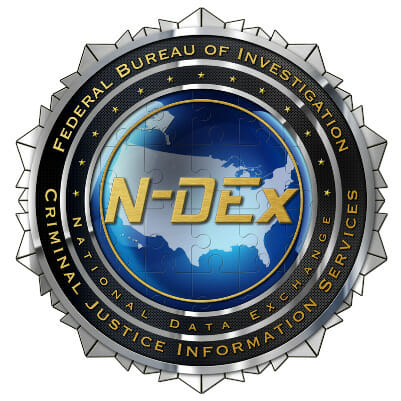How the FBI’s N-DEx System is paving the way to long overdue innovation in the Law Enforcement Technology Space.

It’s a hot take, but Law Enforcement Software Vendors that are holding your data hostage and refusing to play nicely with others are hurting Law Enforcement Agencies in America, all in the name of making a few bucks.
Don’t get me wrong, I completely see the irony here. As a company who sells Law Enforcement Software, we make more money when more agencies use our system, and when we can facilitate a network of agencies all using our system to share data with each other, we’ll get more agencies using our system, and they’ll want to stay longer, which means more money long term. But there’s some problems with that strategy that haven’t really ever come to light. So, here goes. We’re going to shed some light on them.
What is really the problem?
The problem isn’t unique to the law enforcement space; it’s inherent to all tech companies to a certain extent. Whoever controls the data controls the space.
You’ve got tech giants like Google and Meta (Facebook, Instagram, etc.) feverishly gathering information on their users, and selling access to those users to the highest bidder. And while nobody (to my knowledge) in the Law Enforcement Software space is utilizing customer data that way (the CJIS Ninja’s would take them out if they did, and rightfully so), Law Enforcement Software vendors have still figured out a way to monetize the data; by controlling who can access it.
Vendors, including EFORCE, will be the first to acknowledge that your agency owns your data. There are contracts and security addendums clearly spelling that out. But many vendors will flat refuse to share that data by means of an interface with one of their competitors. Sure, there are practical reasons that we talk about in another post about data conversions, but that’s not the real reason they won’t do it. The truth is that if they hold out, the other agency that wants access to the information is more likely to switch vendors to access it. Yeah, there’s a risk that it might go the other way, but odds are it won’t.
It’s this kind of selfish practice that is hindering agencies and preventing crimes from being solved. And as a customer of that vendor, you’ve got to ask yourself, “Do they really have my best interest at heart?”
So how is this bad for law enforcement?
From the vendor’s perspective, here’s how this plays out. If a vendor can secure a “valuable” agency, (or in other words, a larger agency generating a lot of data that other nearby agencies will be interested in) by refusing to share the data other than through their system, the vendor will have an easier time securing the other nearby agencies. This is falsely labeled “brand loyalty”. For the nearby agencies, this becomes more of a hostage negotiation than a business transaction, because the vendor knows they’ve got the agency over a barrel.
This is dangerous to law enforcement for two main reasons.
- This disincentivizes vendors from caring from their customers, and
- it disincentivizes vendors from innovating and competing for your business with their products.
Data as a Commodity
When the data becomes the commodity an agency is purchasing, a vendor is directly incentivized to keeping the “valuable agency” (or data provider) happy. If they can keep their cash cow happy, then the other agencies will pay for access to the data regardless of how well they are treated. Vendors know this, and if you’ve ever been one of the “other” agencies like I have, you know it.
Stifled Innovation Hurts the Agencies, not the Vendors
When a vendor is selling data, it doesn’t matter if the software product you access the data through is subpar, because that’s not what is valuable to an agency. And believe me, it’s a lot more expensive for a vendor to invest in their products than in securing data.
When vendors don’t have to compete for your business, they don’t have to innovate. And that’s what is happening in the Law Enforcement RMS and CAD space. Law Enforcement Agencies have allowed vendors to convince them that data is more valuable than the product they access it through, so they’ve settled. Vendors make more money, and progress is grinding to a halt.
How Did This Happen, and How Do We Fix It?
It’s cheaper for a vendor to invest in securing data, but if they came right out and said it, agencies wouldn’t stand for it. So instead, they’ve convinced agencies that there was no other way to obtain the data.
Now, to be clear, our company also doesn’t like to convert data from one system to another. There are real challenges that make this difficult. But the difference comes when a company uses this as a convenient excuse to avoid losing out on the opportunity to sell data. And with limited alternatives, agencies haven’t had any other choice but to lean into the “data for sale” model.
The real issue here is that there’s never been a neutral party that can be the go between for all the different vendors, and it’s not something that a vendor could stand up and do. If I support another vendor, I’m shooting company in the foot. But all that’s going to change. Enter the FBI’s National Data Exchange (N-DEx) System.
What is N-DEx?
The FBI’s National Data Exchange (N-DEx) system is a powerful tool that allows law enforcement agencies across the United States to share information and collaborate on criminal investigations. As of Feb 2022, more than 8,000 Agencies in the United States are feeding information from their RMS systems into N-DEx, and I can only assume the number has grown since.
N-DEx was developed by the FBI to improve the sharing of information between local, state, and federal law enforcement agencies. The system allows agencies to share data on a wide range of criminal activity, including arrest records, incident reports, and booking information. This information can be used to identify patterns and connections between criminal activity, which can help investigators solve cases and prevent future crimes.
One of the key features of the N-DEx system is its ability to cross-reference data from different sources. For example, an arrest record from one agency can be linked to an incident report from another agency, which can help investigators piece together the full picture of a criminal’s activities.
Another important feature of the N-DEx system is its ability to search and analyze large amounts of data quickly and easily. This is something heretofore unavailable to most agencies in the US.
What does the future hold?
So what does this mean for the future of Law Enforcement Software? With the data centralized in one place, not only does law enforcement have more access than ever before, and more insights than ever before, but now software vendors are going to have to up their game. Vendors are going to have to work harder to earn your business, and that’s a good thing for everyone involved.
EFORCE Software’s Stance on the Matter
Our company was founded on the idea that your agency deserves better. Product Quality, Superior Customer Care and Innovation are the pillars that built our company, and they continue to shape our future.
We firmly believe that our company and our products should make life easier for Law Enforcement. We truly want every agency to find the best product for them, even if it’s not our software. And that’s the way this market should operate. There’s hundreds of choices out there, and you should be able to find and use the best products for your agency, regardless of which company has the data you need to perform at your best.
If you want to see how our products can improve your agency, let’s schedule a no obligation product demo. Just give us a call at 888-570-4943, x. 3, or click the “schedule a demo” button on the site.




